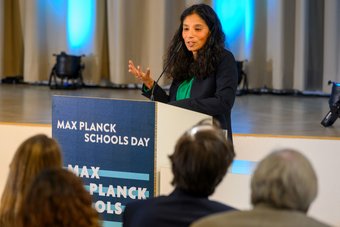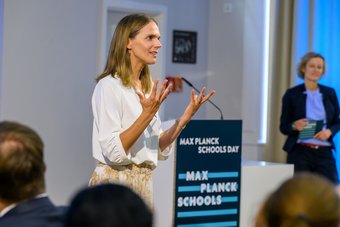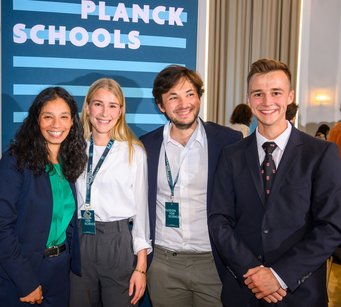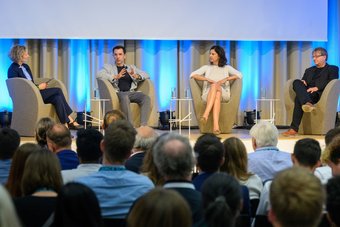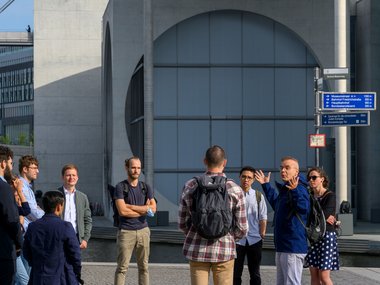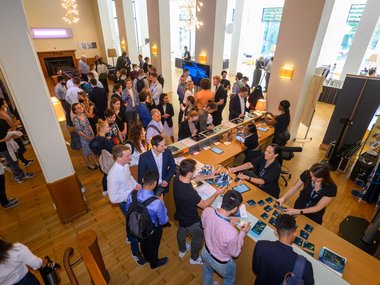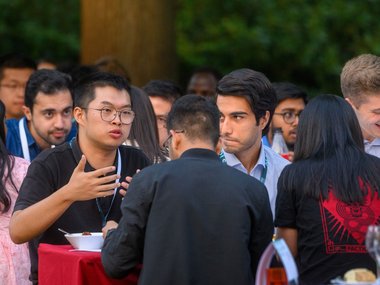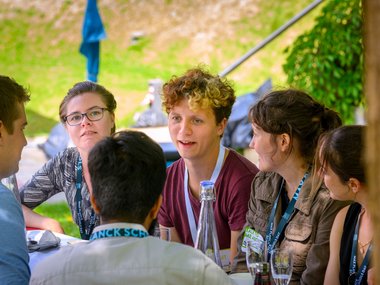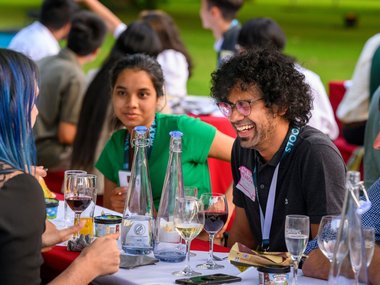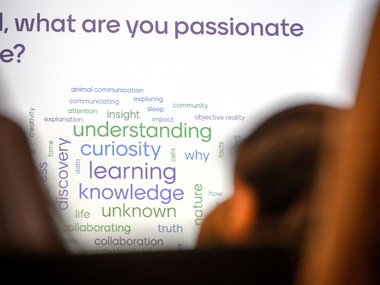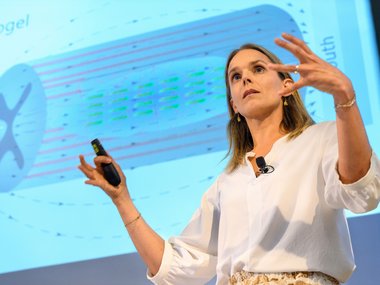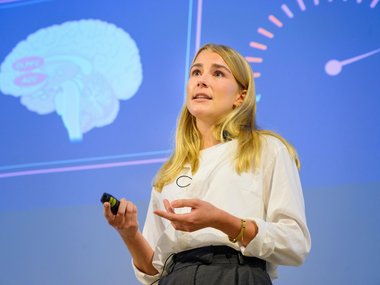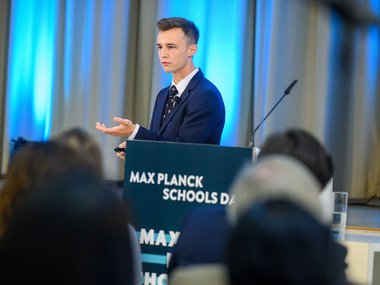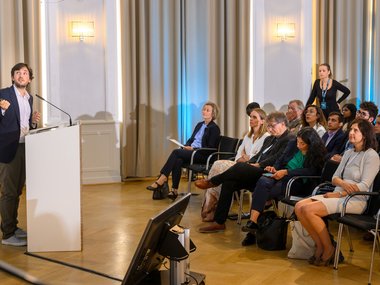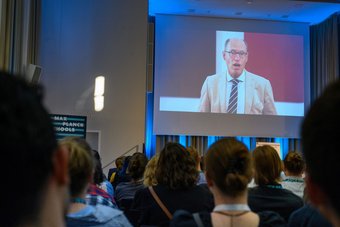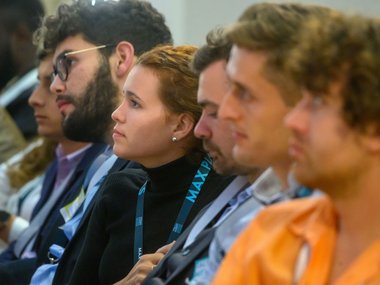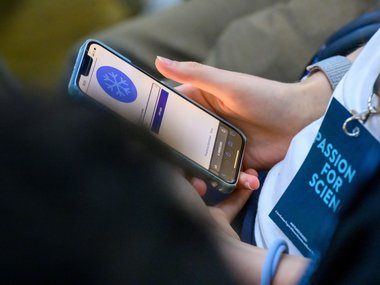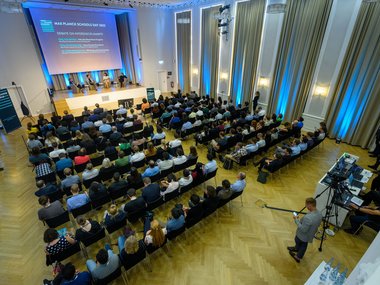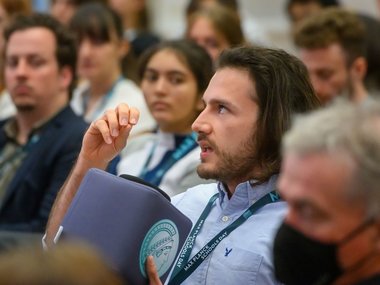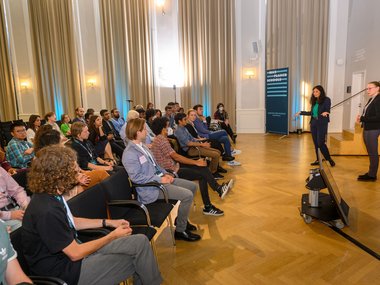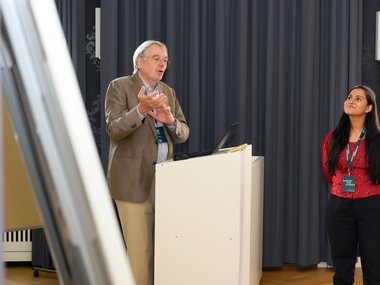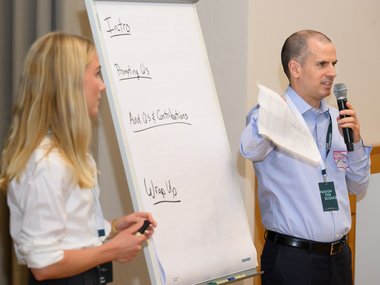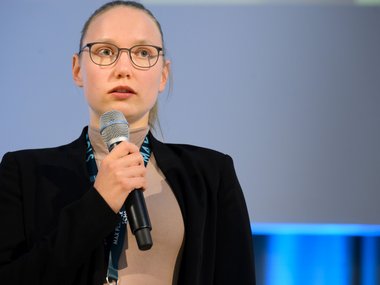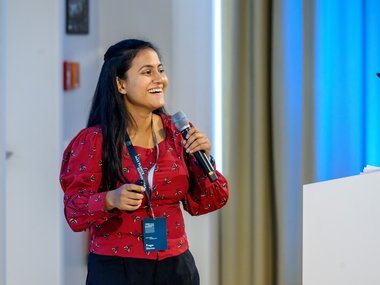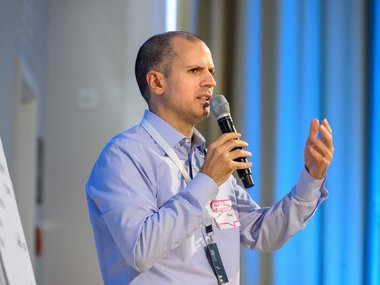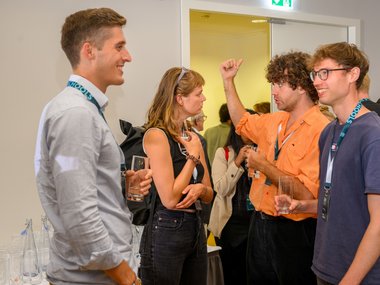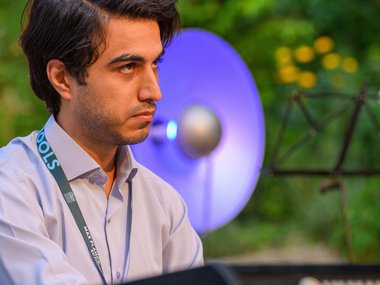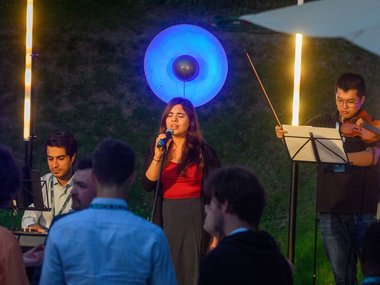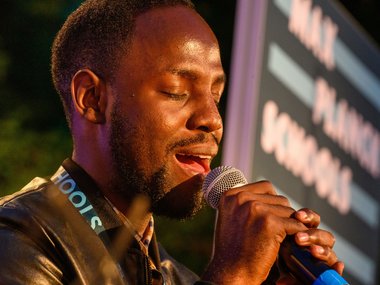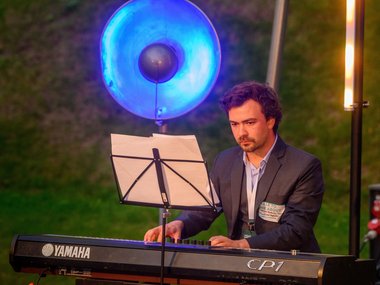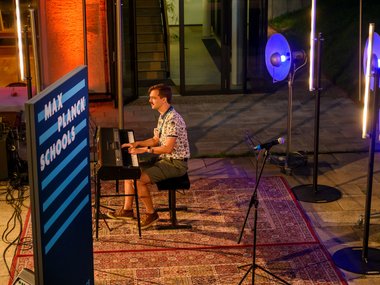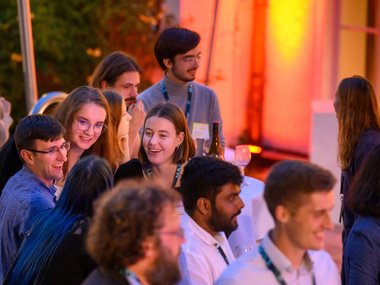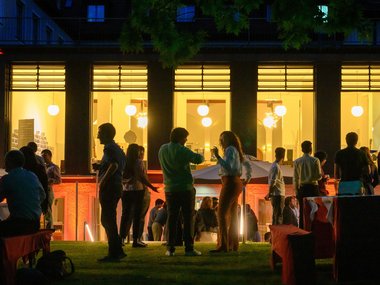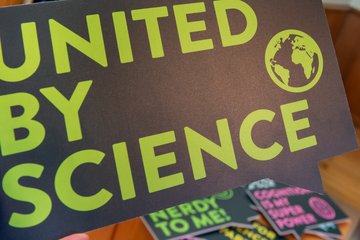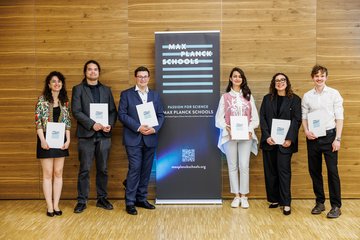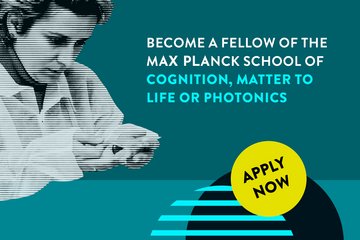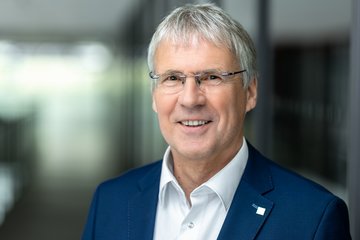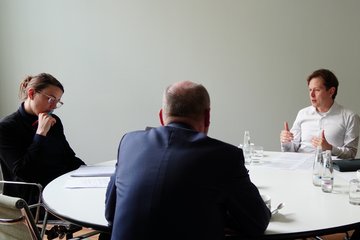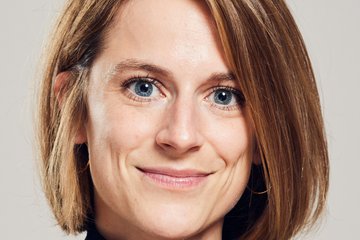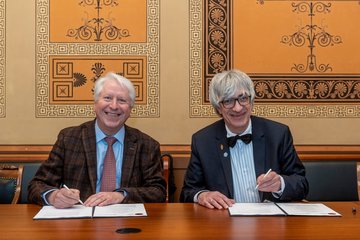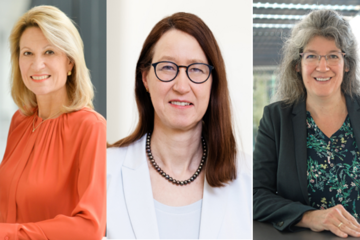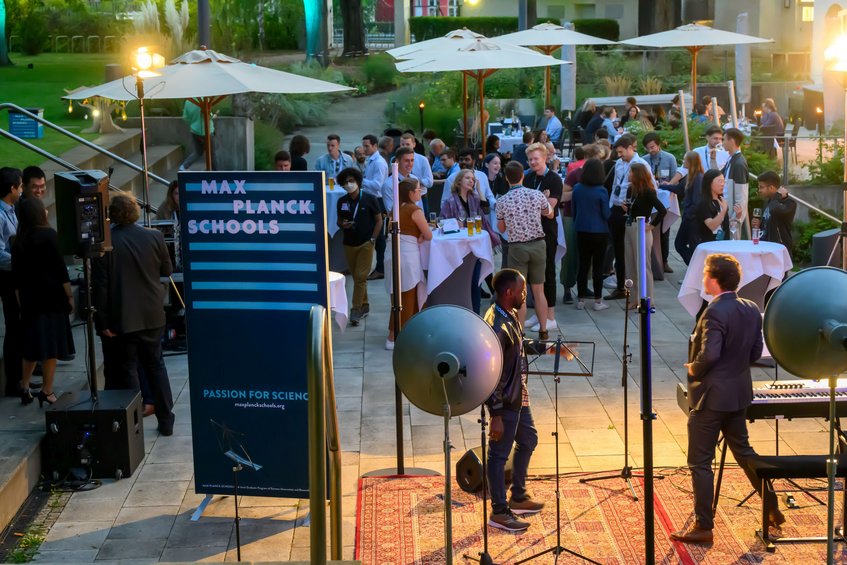
At last - finally networking, discussing and celebrating together again
Fourth annual Max Planck Schools Day at the Harnack-Haus in Berlin
A festive welcome: After two years of virtual get-togethers, the Max Planck Schools Day took place again at the Harnack-Haus in Berlin on September 05. With this year's leading theme "Interdisciplinarity - Chances and Challenges for Research and a Career in Science", roughly 170 participants across all three Schools gathered on site to get to know each other, to exchange ideas and to celebrate the start of the new academic year together. In addition, the fourth student cohort at the three Max Planck Schools - Cognition, Matter to Life, and Photonics – was warmly welcomed.
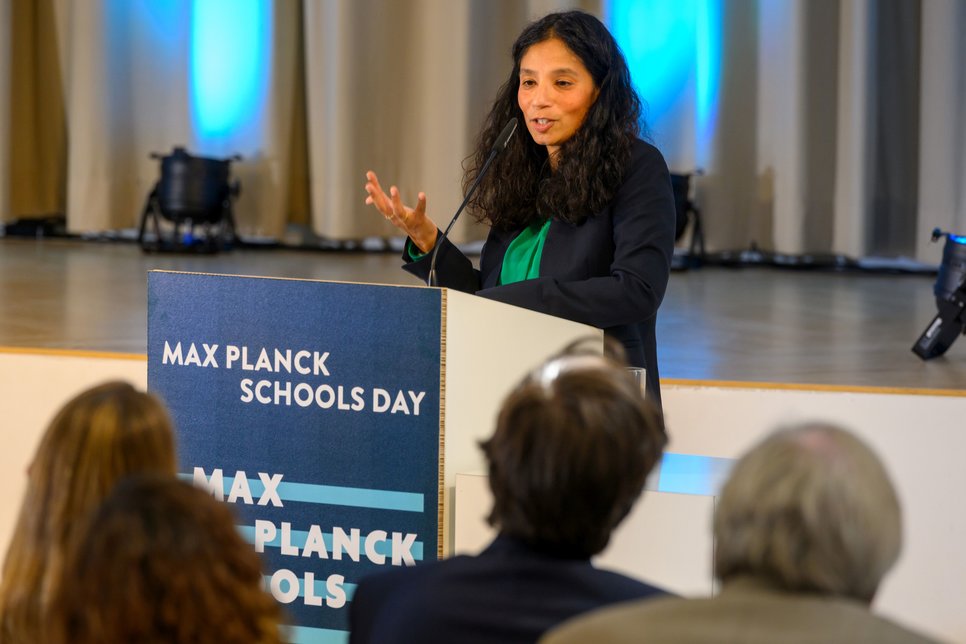
The Max Planck Schools Day on September 05 started for the students and other interested participants with a walking tour about the German reunification and the Berlin Wall in order to dive into the eventful history of the country that the students will call home during their time at the Max Planck Schools. After a joint lunch, the official program started back at the Harnack-Haus with an inspiring welcome speech by Prof. Asifa Akhtar, Vice President of the Max Planck Society,. Picking up on this year's leading theme, "Interdisciplinarity - Chances and Challenges for Research and a Career in Science", she urged the students to be daring and courageous, to believe in their own abilities and not to forget the joy of their own research alongside their work.
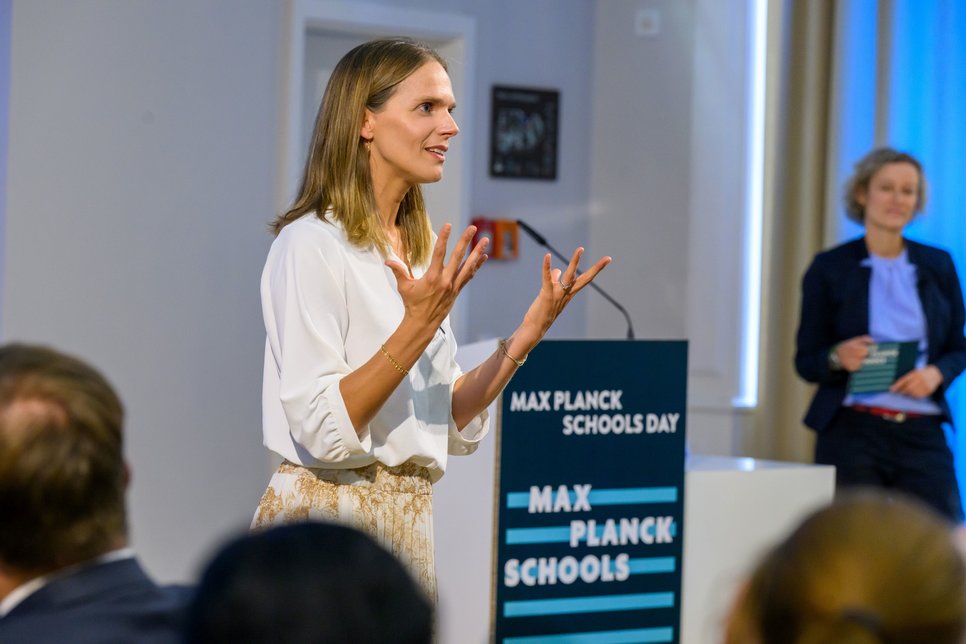
In the following "Passion for Science Lecture", Prof. Laura De Laporte (Fellow of the Max Planck School Matter to Life) gave a very personal insight into her remarkable career, driven by passion for her research. She showed very impressively how one can overcome challenges and also cope with setbacks through consistency, dedication and enthusiasm for science, as well as pursuing personal goals even in a different way. To her, a good scientific network and the valuable feedback from mentors and colleagues are very important in this regard. Along with the excellent research infrastructure, this makes the Max Planck Schools "the ideal environment to excel”.
„Pick your fights wisely, know your strength and do not be afraid to surround yourself with people who are better than you” – was Laura De Laporte's final message to the students.
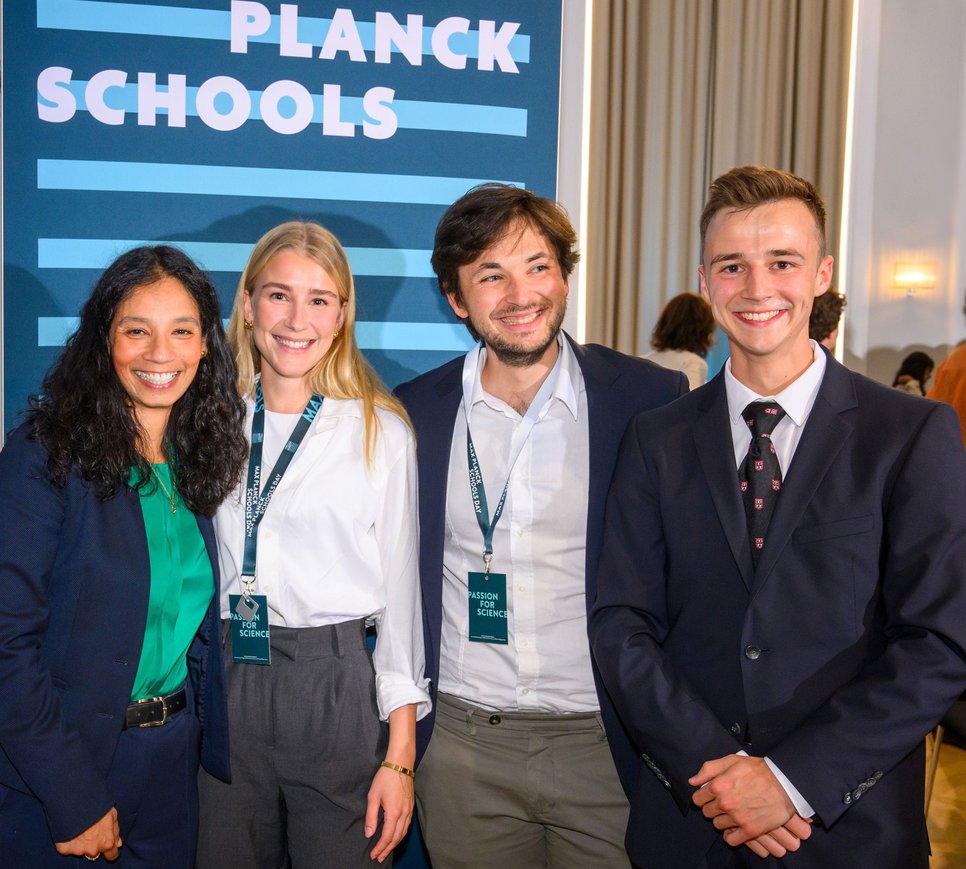
A particular highlight was once again the "Science Talks" by PhD candidates from the three Schools. Alina Panzel (PhD candidate MPS Cognition) used stunning animations to illustrate the mechanisms of the pain-relieving properties of the placebo effect. Her PhD project deals with the question whether these pain-relieving effects can be transferred from one pain modality to others. Henrik von der Emde (PhD candidate MPS Photonics) brought light into the darkness or rather razor sharp clarity. His work focuses on the development of new methods in high-resolution fluorescence microscopy. As such, the MINSTED technology enables the observation of biological cells at single-digit nanometer resolution. Finally, Michele Stasi (PhD candidate MPS Matter to Life) opened his talk by asking the question, "What is the smallest machine you can imagine?" He demonstrated very concisely that DNA not only contains our genetic material and thus is the foundation of our life, but can also be used as "engineering material" to develop engines powered by chemical reactions.
Chances and challenges of interdisciplinarity - lively discussions at all levels
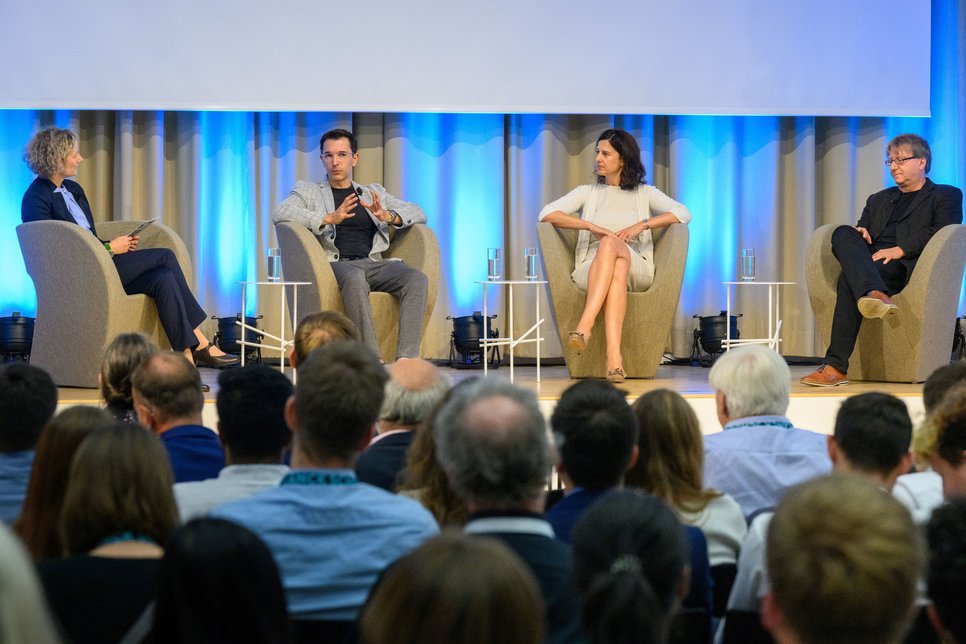
After a short break, Dr. Katrin Rehak-Nitsche (SPD Member of the State Parliament and Chair of the Science Forum Rhineland-Palatinate), Prof. Iyad Rahwan (Fellow MPS Cognition) and Prof. Jan-Michael Rost (Dean of the MPS) discussed opportunities and challenges of interdisciplinarity. Moderated by Monika Seynsche, the panelists debated in particular whether the framework of the PhD should include interdisciplinary training, or rather focus on a well-founded disciplinary training as the basis for successful interdisciplinary work in the long-term. Additionally, an intense debate emerged on the question of why so much significance was given to interdisciplinarity in recent years and whether this might be driven by political and societal demands in the sense of a "problem-solving strategy" or if it has rather evolved from science itself. One thing that the three experts agreed on is the importance of "speaking a common language" and "agreeing upon collective goals" in order to successfully communicate across disciplines.
The subsequent workshops on “Interdisciplinarity - Definition and motivation”, “Interdisciplinarity at the Max Planck Schools”, and “Interdisciplinary training and disciplinary expertise” allowed students to get involved in the topic themselves and to discuss aspects and issues raised in the debate in detail. Moderated by Stephen Casale (MPS Matter to Life) and Prof. Jan-Michael-Rost, Pragya Sharma (MPS Photonics) and Prof. Martin Möller (Fellow MPS Matter to Life) as well as Michelle Kemper (MPS Matter to Life) and Prof. Asifa Akhtar, stimulating and lively discussions unfolded. The final presentation of the results demonstrated that this year's leading theme gave the students much cause for lively discussions.
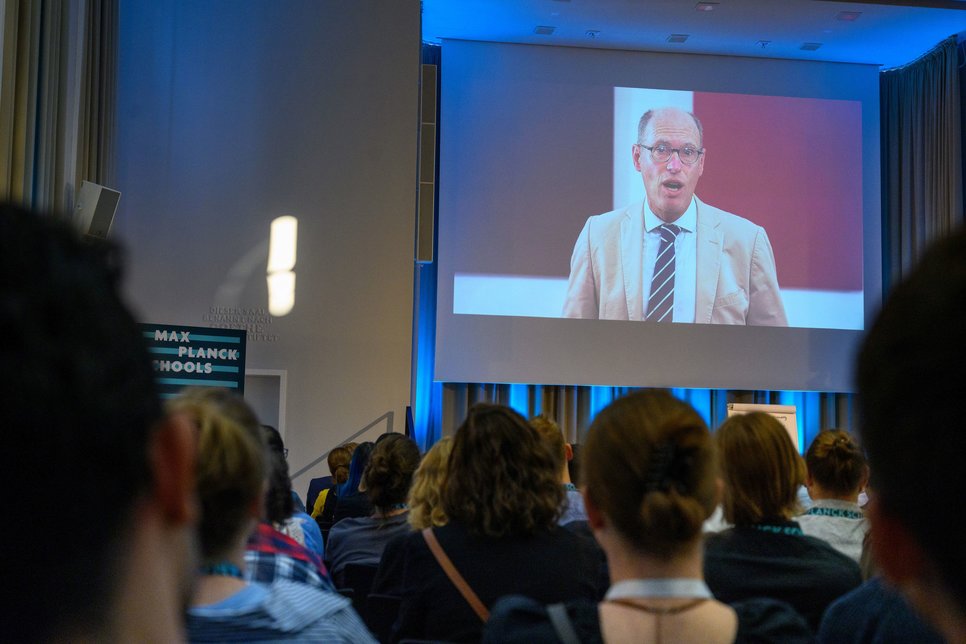
A video message from Prof. Peter-André Alt (President of the German Rectors' Conference) brought the official part of the program to a close. In his speech, he emphasized the importance of the nationwide and interdisciplinary approach of the Max Planck Schools for a sustainable development of the German science system. He concluded the debate around Interdisciplinarity by stating that "a well-founded qualification within the disciplines [should] not be neglected in order [...] to be able to work in a truly interdisciplinary way".
The evening was all about the students - live music, karaoke, and lively exchanges
In the spirit of the Max Planck Schools Day - personal exchange and strengthening the sense of community across the Schools - the event ended with a vegetarian BBQ in the garden of the Harnack-Haus and lively conversations. The highlight of the evening was a live music program organized by the Student Representatives, Lioba Enk, Leonardo Pettini, Kerim Köster, and Anastassiya Schramm: Jorik Elberse, Philipp Baur, Anika Khanda, Weizhe Li, Siavash Davani, and Deus Mwesigwa impressed the audience with their musical talents. This could also be demonstrated during joint karaoke sessions. It was not only the warm late summer evening that created a good atmosphere, but also the personal exchange, the sense of community, as well as very interesting and stimulating discussions, which together made this year’s Max Planck Schools Day a truly memorable experience.
We would like to thank all participants - especially the Student Reps for their support in the organization and our experts for their contribution - for this unique day and wish our students all the best for the upcoming time and the new cohort a good start at the Max Planck Schools!
